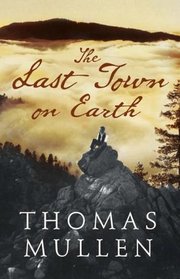Helpful Score: 9
If you're a fan of historical fiction, you'll probably like this book. Roughly, it is about a very small town in Washington state that decides to quarantine itself from the outside world to protect its citizens from the great Flu epidemic of 1918, and also during the same timeframe as WWI. Shortly after the town decides to quarantine itself, a soldier shows up needing food and shelter and the effects of what happens next really drives the whole novel. At first, I found this book to be very tedious and monotonous, and I almost put the book down and quit it altogether. There is a LOT of background plot details to establish, and a lot of characters to develop, which is especially concentrated at the first half of the novel. Once I got through that, though, I found the book nearly impossible to put down...it really became quite the thriller. My copy of the book contained an interview with the author about how he developed the novel and some little known, or overlooked facts about the great war and the great flu. I loved this book and, if you have the patience for it, highly recommend it!
I enjoyed this book for its historical perspective on politics and labor movement of the time period. It didn't live up to my expectations in terms of writing style or plot. I feel that the writer would be better at historical non-fiction as he just didn't build sympathetic characters nor a well-sustained plot. There were far too many characters introduced who were only tangentially related to the plot, and the plot was interrupted by too many ill-defined subplots. Maybe a second book by this author will show more mature writing as the book was well-researched and the premise was quite interesting.
Helpful Score: 2
A small logging town decides to quarantine itself from the deadly flu. There are unforseen consequences from this decision. Draws you in and very good novel.
Helpful Score: 2
A few years ago, I read John Barry's non-fiction account of the 1918 flu pandemic. This novel about a fictional town (logging community, actually) which quarantined itself to keep the flu out, draws on accounts of other towns actually taking such precautions.
The imaginative combination of various historical events (the flu, unions, the Great War, suffrage, etc.) and complex characters (although it's pretty clear who the "good guys" are most of the time) make this worth reading.
The imaginative combination of various historical events (the flu, unions, the Great War, suffrage, etc.) and complex characters (although it's pretty clear who the "good guys" are most of the time) make this worth reading.
Helpful Score: 2
It's days later, and I'm still thinking about this book. Choices people make, even with the best intentions, don't always work in the long run. This book is a compelling look at how an epidemic during wartime affects a small town in early 20th century America in ways both large and small.




